Innocent Descartes and Sober Hobbes

Interview by Richard Marshall.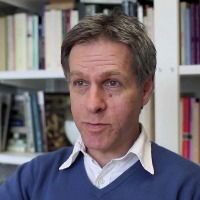
'The question here is whether, in Western European thought, the early 17th century marks the beginning of a genuinely new kind of philosophy, which the textbooks call “modern”. I would say ‘Yes’, despite the fact that the sharpness of the break is clearer in the authors currently taught in standard courses than in their contemporaries or near contemporaries, like Scipion Dupleix. In some things I’ve written I’ve called Descartes hyper-modern, because his break from scholasticism is particularly clean.'
'Innocent Cartesianism is an extract or residue from unreconstructed Cartesianism that is defensible in terms provided by analytic philosophy as we have it today. An important strand of it can be put by saying that while natural science is capable of objective truth in its domain, it’s not a theory of everything. There are more forms of systematic and correct understanding than are provided by natural science. Brain science doesn’t tell us everything about the mind; Darwinism doesn’t tell us everything about the place of human beings in nature or their motivation; there are further authoritative forms of understanding, including mathematics, philosophy, and ethics.'
'Sober Hobbesianism is a variety of liberalism. It promotes the autonomy of self-critical pursuers of a variety of goods, so long as these goods do not endanger life. It assumes that citizens have reflective capacities and that they are not at the mercy of their strongest desires and aversions. It assumes that people can be moved by what is in anyone’s interest, and not only by what is good for themselves. But it also gives great weight to the protection of life and freedom from injury, and it calls for institutions designed to secure these things. In other words, it values security.'
'So is Hobbes’s politics dependent at least on Hobbes’s systematic psychology, and, through that, on the rest of the sciences? Yes and no. There is a route from the psychology to the character of social life in which some of the participants are vainglorious and aggressive, and others moderate but willing and entitled to defend themselves. These are the ingredients of the famous war in the state of nature. Does one need be taught a systematic psychology in order to be convinced that fellow human beings are naturally to be feared or at least approached cautiously because they are potential enemies in a war? No. Hobbes thinks this conviction, which is the starting point for politics, is second nature to us.'
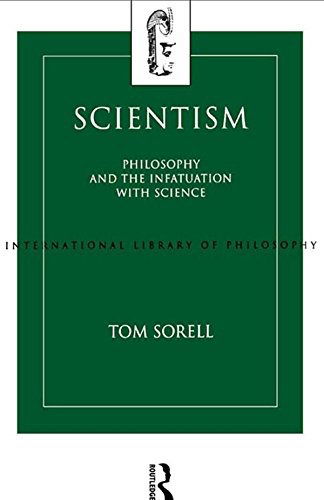
Tom Sorell is Professor of Politics and Philosophy at Warwick University and Head of the Interdisciplinary Ethics Research Group in PAIS. He was an RCUK Global Uncertainties Leadership Fellow (2013-2016). Previously, he was John Ferguson Professor of Global Ethics and Director of the Centre for the Study of Global Ethics, University of Birmingham. Before that he was Co-Director of the Human Rights Centre, University of Essex. In 1996-7 he was Fellow in Ethics at Harvard. He was also the Tang Chun-I Visiting Professor in Philosophy at the Chinese University of Hong Kong in 2013. He has published extensively in moral and political philosophy, including four books, and dozens of journal articles. His most recent published work takes up (i) moral and political issues raised by emergencies, including terrorist emergencies; (ii) microfinance and human rights; (iii) human rights and hactivism; and (iv) the defensibiity of preventive justice.He has worked on many European and RCUK funded research projects. He has also served as a consultant on security-sensitive material in UK universities and on the committee advising the AHRC on the Internet of Things. Here he discusses the emergence of a new kind of philosophy in the 17th century, Descartes unreconstructed, Innocent Cartesianism, Descartes and naturalism, Sober Hobbes, Hobbes and the connection between science and morals and politics, what Hobbes means by 'basic', Hobbes on private and public emergencies, Raz and liberalism, Hobbes and Schmitt, Walzer and Schmitt, why organised crime is more difficult than terroriism to legislate against, human rights and micro-finance, and whether private morality trumps public morality.
3:16: What made you become a philosopher?
Tom Sorrell: When I first attended McGill as an undergraduate in the late 60s, I found political science articles turgid and dull, and history courses unrewarding. Philosophy was difficult, precise, often persuasive, and held my attention. I took as many courses in it as I could. Nothing I encountered bored me. The McGill philosophy department at the time was an odd mix of three types: historians of Western philosophy covering a wide range of periods and authors; analytic philosophers with varied interests, and a group of philosophers of science led by Mario Bunge. Charles Taylor was at McGill at the time in Political Science, but he never taught me. I didn’t work with Bunge. I remember being captivated by the analytic philosophy I encountered. Most of this was British rather than American. But I also worked hard on any text that the historians had us read. And as a politically involved student at the time who was active in campus journalism, I was interested in Marxism both as a philosophy and as an approach to mobilising people.
I got good marks, and it was really my teachers who pointed me toward a career in philosophy. On inspection, the idea seemed wild. Every US graduate school sent admissions forms with prominent health warnings: the number of jobs in philosophy when I graduated (1972) was declining sharply, and one was told firmly not to set one’s heart on getting one. Ignoring these warnings, I spent a year after the BA at an American university I will not name and promptly had a bit of a crisis. An essay on the early Russell on truth practically paralysed me, and I became so blocked that I couldn’t sleep properly or keep up with the duties of a Teaching Assistant. Every day I would drink countless cups of coffee while making false start after false start at the typewriter. The professor who assigned the essay advised me to take time away from it, but I couldn’t. I persevered for months, and little by little, a line of thought emerged. Working through the night on many occasions when I wouldn’t have slept anyway, I finally finished the paper, and found the fluency needed to write the others I had been late submitting. There have been very few days since then when I have not written at least a little philosophy: the fear of drying up is still there, and it has helped to make me go further into philosophy.
The academic year after my crisis, in 1973, I started the BPhil at Oxford (Balliol College). Having learned a great deal about Russell, I worked on the Wittgenstein of the Tractatus and threw myself into the teeming philosophical community I found at the University. It broadened and deepened my understanding of epistemology and metaphysics, and introduced me to philosophical logic and philosophy of mind (I had not yet started serious work in ethics). I was lucky in my teachers: Brian McGuinness (on the Tractatus), John Mackie, Gareth Evans, John McDowell, Simon Blackburn, Peter Strawson and David Pears. Going to Oxford and getting the BPhil improved my chances of getting a job, and after completing the DPhil, I got one of the last advertised British posts before the Thatcher government took an axe to at least four UK departments teaching the subject.
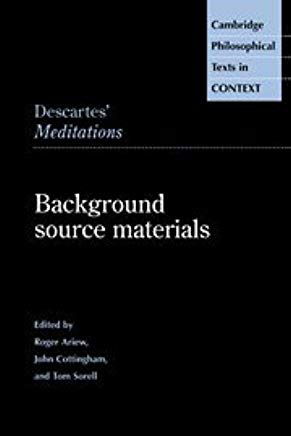
3:16: You’re interested in early modern philosophers such as Hobbes and Descartes and contemporary philosophy’s relationship with these as well as the relationship of the early moderns with what went before them. Starting with this latter concern, has the news of the so-called ‘long middle ages’ made it more difficult to assert that Bacon, Descartes, Machiavelli, Hobbes, Spinoza and Leibniz were making an obvious break from the Aristotelianism that went before it? And are current experimental philosophers right in thinking that they are heirs to the early modern philosopher-scientists?
TS: The question here is whether, in Western European thought, the early 17th century marks the beginning of a genuinely new kind of philosophy, which the textbooks call “modern”. I would say ‘Yes’, despite the fact that the sharpness of the break is clearer in the authors currently taught in standard courses than in their contemporaries or near contemporaries, like Scipion Dupleix. In some things I’ve written I’ve called Descartes hyper-modern, because his break from scholasticism is particularly clean. He has a distinctively compact metaphysical apparatus to go with the economy of his mechanics–and this is an important sign of the modern and anti-scholastic in his thought. But, besides, he’s a great innovator in philosophical writing --both in the Meditations and in the Discourse. His gifts as a stylist helped him not only to make his message seem unthreatening to at least some scholastics in 1637 and 1641, but also to reach generations of students hundreds of years later, who are introduced to philosophy through his writings. I wouldn’t say that Bacon –with his heavy reliance on taxonomies-- is comparable to Descartes in his modernity. As for Spinoza, he is heavily indebted to Descartes (and Hobbes) and so is already once-removed as a leading modernizer. Leibniz goes to some trouble to rehabilitate substantial forms in a modern philosophy. So his break from scholasticism is less than clean. In his natural philosophy Hobbes is by his own admission heavily indebted to Gallileo, Gassendi and others. So: less groundbreaking than Descartes. In politics, on the other hand, Hobbes is a great innovator, and far more systematic than Machiavelli. System is not a mark of modernity, necessarily, but conceptual economy is, and one finds that in Hobbes’s politics.
There is, perhaps, a connection between, on the one hand, “experimental philosophy” in the sense of Knobe and Stich today, and, on the other hand, the “experimental philosophy” practised by Boyle and other members of the Royal Society in the 1600s, but I have argued in a recent journal paper that the link is weak: 21st century experimental philosophers certainly continue the naturalism of some 17th and 18th century philosophy, but their characteristic methods –surveys of the intuitions of ordinary users of philosophically interesting vocabulary –like ‘knows’ or ‘is responsible’ —are hard to connect with the leading early moderns, and Hobbes in particular was definitely not an experimental philosopher even in Boyle’s sense, having been a loud critic of Boyle’s interpretation of his own airpump experiments. In general, 21st century experimental philosophers are wrong to argue for a deep continuity between philosophy in many forms in our own day and “science” in the sense of early modern physics or physiology.
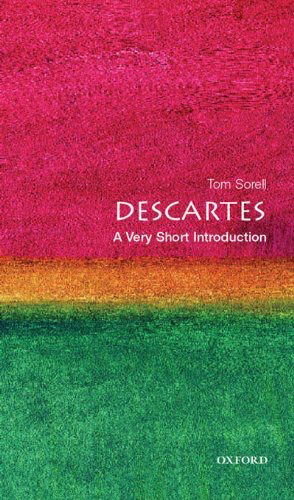
3:16: So Descartes is a key figure in this and he’s someone you’ve ‘reinvented’ to show that contemporary analytic philosophy shouldn’t be so hostile – not least because much of it is itself Cartesian. So first, can you sketch for us what you call ‘unreconstructed Cartesianism’ claims?
TS: In a nutshell, Unreconstructed Cartesianism says that there is a God-decreed order in nature that human beings are able to capture in science; that the makings of this science are accessible to the rational self with effort and the right method; and that reason is a God-given capacity more essential to people than, and independent of, the senses. Because the God-decreed order is independent of the human mind, unreconstructed Cartesianism is a Realist philosophy and one that permits and respects epistemological scepticism. While respectful of scepticism, unreconstructed Cartesianism is also anti-sceptical. (The Meditations shows that sweeping doubt cannot take away the certainty of the foundations of physics.) It makes both science and right action depend on the exercise of reason. And it insists that there is an important first personal aspect to thought, knowledge and action. It recognises non-natural entities, including minds, numbers, and geometrical entities.
3:16: In place of this view is what you call ‘innocent Cartesianism’. In this the coherence of sweeping Cartesian sceptical hypotheses is reasserted and it’s denied that skepticism can’t be totally refuted. So what is this innocent Cartesianism and why should contemporary analytic philosophers note it? Which parts of current analytic philosophy can be mapped onto this perspective and which parts of contemporary analytic philosophy does it dispute? You also claim that there are elements of the unreconstructed version that are also relatively innocent too don’t you? Can you say something about this?
TS: Innocent Cartesianism is an extract or residue from unreconstructed Cartesianism that is defensible in terms provided by analytic philosophy as we have it today. An important strand of it can be put by saying that while natural science is capable of objective truth in its domain, it’s not a theory of everything. There are more forms of systematic and correct understanding than are provided by natural science. Brain science doesn’t tell us everything about the mind; Darwinism doesn’t tell us everything about the place of human beings in nature or their motivation; there are further authoritative forms of understanding, including mathematics, philosophy, and ethics. These forms of understanding resist reduction to natural science, but not, as in unreconstructed Cartesianism, because of any connection their content has to God.
Another way of putting it is by saying that Innocent Cartesianism is unreconstructed Cartesianism minus (a) arguments for the objectivity and of science that are internally unstable and (b) some elements that appear in unreconstructed Cartesianism partly to give Descartes’s physics a façade of religious orthodoxy. These latter elements include an alleged first principle of his metaphysics –that God exists—and the proofs of this proposition in Meditations 3 and 5. Not that everything about Descartes’s use of the concept of God is jettisoned by innocent Cartesianism. In particular, the idea that God’s mind is infinite and purely spiritual, whereas ours is finite and embodied, helps to indicate the cognitive limitations of human beings. An infinite mind not biologically realized at all and with direct cognitive access to the world as its creator is a mind that might directly and fully grasp the world as it is. In this sense Descartes’s God might be the locus of a would-be “absolute conception” –to borrow Bernard Williams’s term—as opposed to a conception captured through the sense-based elements, substances and genera of Aristotelian physics.
The idea that natural science aims at presenting an independent world as it is objectively, is part of what I claim is an innocent (defensible) Realism in Descartes’ philosophy of science. The idea that there are conceptions of the world much more objective than the human sense-based one is also innocent. It is not only crucial to Descartes’s anti-Aristotelianism and to his belief in the possibility of scepticism about the external world: it is crucial to any realist philosophy of science.
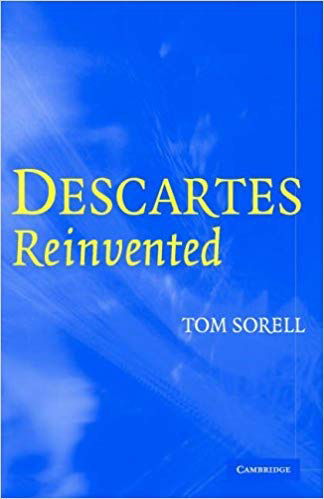
My claim in Descartes Reinvented is that, while Descartes is heavily criticised in analytic philosophy (e.g. for insisting on substantial dualism, for believing in a first philosophy intelligible apart from natural science, and for saddling his successors with the “privacy” of the mental), some respectable ideas in current analytic philosophy are actually unwitting “reinventions” of Cartesian ideas. McGinn’s mysterianism about the mind is anticipated in Descartes’s views about the inscrutability of mind-body union, and Descartes’s views about the limits of naturalistic explanations of the mind and mathematics are discernible in Nagel. Again, the deep realism in Descartes –that is, his tendency to think that truths about the physical world are logically independent of truths about sense experience, is also very familiar and widely accepted, even though it permits a fairly extreme scepticism that many otherwise realist philosophers want to avoid.
3:16: Isn’t this innocent position anti-naturalistic about the nature of consciousness and minds, mathematics and logic? The first two are controversial claims these days (although David Chalmers gives them an airing) but the latter two less so – Tim Williamson for example has argued a similar position to rebut modern philosophical naturalism. So is an innocent Cartesian anti-naturalist and how does anti-naturalism connect his rationalism to his dualism?
TS: The fact that non-naturalism is less controversial these days as a thesis about mathematics and logic is what I mean by claiming that certain ideas that are central to Descartes are not associated with vilifying rhetoric about him in the philosophy of mind and epistemology. They are mainstream, and, in that sense, innocent. On the other hand, Descartes himself thinks that there are explanations of the passions and sense experience that are largely stories about the interactions of the brain, the human body and external objects. It is not as if introspection in the solipsistic space created by the doubt in Meditation One gives you a full understanding of the interactive mind. Empirical investigation informs Descartes’s views about human sense-perception and imagination, and mechanisms of emotional self-control. But there is also the contribution of the sense-independent mind and reasoning --to identify what might be distorting in sensory content, and potentially harmful in the uncontrolled emotions.
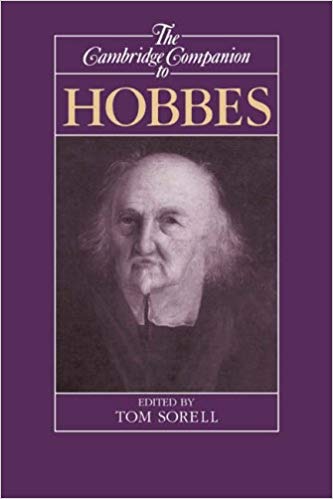
3:16: Hobbes is another giant of the early moderns that you wrestle with. He is best known these days for his moral and political philosophy but you argue that his views about science are also important as background for everything else he wrote about. So what’s the connection between his views on science and his political and ethical writings? You have an original view about this don’t you, one that denies that he thought politics derived its status from the possibility of being located within a unified science? So what’s the right answer?
TS: Hobbes’s most extended intellectual project was the composition of a trilogy –the Elements of Philosophy—with volumes on body, man and citizen, in that order. These books were written and published out of order. The third –on the citizen—appeared in 1642, nine years before De corpore, and it was not until 1658 that De homine was produced: it has been little read, and to my knowledge still lacks a complete translation into English. These books certainly don’t go together to form a seamless whole, but interpreters have taken them to amount to a statement of Hobbes’s system and have looked to Hobbes’s pronouncements on method in De corpore for the intended architecture of his system.
I think this approach is wrong on at least two counts. First, the Elements of Philosophy isn’t the statement of Hobbes’s system but the order of teaching the elements of philosophy or science in general. Hobbes credits himself with the invention of only two major sciences: politics and optics. But the trilogy is an orderly guide through those sciences and others, drawing explicitly not only on Hobbes but on Galileo, Copernicus, Kepler, Gassendi, and Harvey.
Second, to the extent that Hobbes has a whole system of philosophy of his own, it seems to consist of a schematic first philosophy, a philosophy of geometry treating geometrical entities as the effects of motion, a derivative mechanics and physics, an optics, a psychology, and finally a politics. The content of the foundational sciences in the system lie in many writings outside the trilogy, notably in a commentary on Thomas White’s De Mundo and Six Lessons to the Professors of Geometry, and they were never given a complete formulation. Nevertheless, it is clear from two of Hobbes’s political treatises, the Elements of Law and Leviathan, that Hobbes thought a systematic psychology provided some conclusions from which his science of politics begins, and also that psychology was not free standing but rooted in other sciences.
So is Hobbes’s politics dependent at least on Hobbes’s systematic psychology, and, through that, on the rest of the sciences? Yes and no. There is a route from the psychology to the character of social life in which some of the participants are vainglorious and aggressive, and others moderate but willing and entitled to defend themselves. These are the ingredients of the famous war in the state of nature. Does one need be taught a systematic psychology in order to be convinced that fellow human beings are naturally to be feared or at least approached cautiously because they are potential enemies in a war? No. Hobbes thinks this conviction, which is the starting point for politics, is second nature to us. In both De cive, ch. 1, and Leviathan, ch. 13, he says that we all know from experience the ingredients of potential war. We are familiar with the quarrelsome and acquisitive behaviour of ordinary human beings, which is everywhere on display. We also know about human customs that express mutual fear: going out armed, locking our belongings away. Again, we know fear by introspection when we imagine the consequences of a war in which we are involved.
The starting point for politics, then, does not have to come from fully-fledged psychology, which is why De cive could be published and be expected to be understood when its prequel was not only not in print but not even fully composed. It is true that systematic psychology throws light on the foundations of politics, but pre-systematic psychology—derived from introspection and observation-- is enough to make the politics accessible. In this sense politics is an autonomous science that teaches people how to avoid war even when they are completely innocent of the mechanistic basis for all natural science.
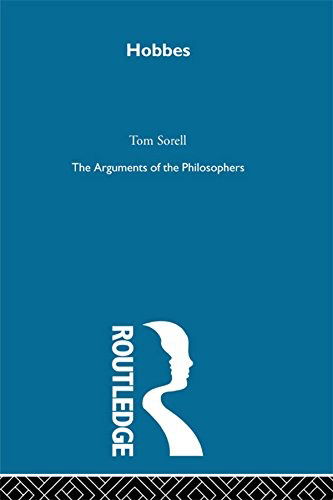
3:16: Even though Hobbes thought that geometry was the most basic natural science he didn’t think that you could deduce the rest of natural science from its axioms did he? So what did he mean by ‘basic’ here and are there lessons for contemporaries - for example when physicists make similar claims today?
TS: I think “deduction” in the sense of “derivable by valid rules of inference from axioms” is not the process that takes a student of Hobbes’s elements of science from first philosophy and geometry to mechanics or physics. Instead, there is an order of intelligibility in the sciences. Many sciences study the effects of motion, but motion can be simple or complex and involve different bodies and their parts, and these subject-matters underlie the system of science. The simpler the motion and body, the earlier in the order of intelligibility the relevant sciences are. The fact that sciences of simpler things are more intelligible than others does not mean that the others are “deduced” in the modern logic-book sense from the others. It means that the others are introduced after, and in the light of, the sciences of simpler things, leaning on the definitions and conclusions of those sciences, but more loosely than the way in which theorems depend on axioms.
The different claims of different foundational sciences to deal with simples are sometimes unclear. I actually think there is a tension in Hobbes between the status of first philosophy as the most basic science and the status of geometry. First philosophy assembles definitions of the most universal terms, but it is not the study of the effects of motions. Geometry is both the study of the effects of motion (in its constructions of two- and three-dimensional figures) and the deduction of truths from axioms. So first philosophy and geometry each make more intelligible the sciences that are further on in the order of teaching (that are more derivative), but they do so in different ways. First philosophy fixes senses of terms between teachers and learners; geometry gives a maker’s knowledge of regular two-dimensional figures and solids.
3:16: For him moral philosophy was about the study of the motions of the mind, wasn’t it? So how did he conceive of the connection between ethics and civil philosophy?
TS: Hobbes characterises moral philosophy in a number of different, maybe even conflicting, ways. Sometimes he associates it with knowing the effects of the passions, in turn intelligible as “motions of the mind” or at least the motions of human physiology. At other times, he identifies moral philosophy with a set of precepts—the “laws of nature”-- derived in a particular order. To the extent that he runs together moral philosophy with the motions of the mind, he means the study of the ingredients of war in the passions and “manners” of human beings. To the extent moral philosophy is the laws of nature, he mainly means precepts for getting out and staying out of the state of nature.
Both approaches to moral philosophy --through motions and precepts-- engage with his politics or civil philosophy. We’ve already talked about how his theory of the passions foregrounds his distinctive argument that the war of all against all is the alternative to life under government: a mix of an aggressive minority with others exercising the right to self-defence leads to a general state of violence The laws of nature tell us why and how we should leave the state of violence. There are two fundamental laws of nature –to seek peace to the extent others are willing to do so; and to seek peace by laying down rights. In particular, in the famous social contract that establishes a commonwealth, each person lays down by transferring their right of nature to a third party willing to direct all the others how to keep the peace.
The right of nature is the right of each to be the judge of what is necessary for their survival and well-being. To form a commonwealth, a majority of a local population has to transfer this right to a third party who thereupon becomes sovereign and decides for them all through the laws he makes what will keep them alive and allow them to be moderately prosperous. Transferring the right of nature takes away the conditions for war by, among other things, radically reducing the number of wills in charge of the survival of the many. One directing intelligence is better than many when there are so many people who are controlled by their passions. But this directing intelligence, who acts by laying down the law for the many, is itself constrained. Hobbes’s politics talks about the unlimited rights of sovereign once the rest in the Commonwealth have submitted; but there are also duties of sovereigns, including the duty of keeping people safe from conquest, unfettered by unnecessary laws, treated more or less equally by the courts, and punished proportionately. The laws of nature mesh very well with these duties, and it is moral philosophy in the sense of a system of laws of nature that does more to unify the details of Hobbes’s politics with his moral philosophy than moral philosophy as “motions of the mind”.

3:16: You show how materials in Hobbes may be utilized to understand contemporary challenges in your work on the ethics of private and a sub set of public emergencies – so first – what are these emergencies and what are the elements of Hobbes and contemporary legal philosopher Joseph Raz that you draw on to compose your theory?
TS: Yes, in Emergencies and Politics I try to show how, after revising Hobbes somewhat, one gets a surprisingly sensible approach to public emergencies in the form of civil war or recurring acts of large-scale terrorism. I contrast the revised Hobbesian doctrine –sober Hobbesianism—with unreconstructed Hobbesianism. Sober Hobbesianism is unreconstructed Hobbes minus three exaggerations. First, Hobbes sets the threshold for war-provoking disagreement far too low. In his earliest political treatise, where sovereignty is connected with reducing many wills to one, he writes as if whenever practical judgement is distributed over more persons than one, it is plagued by indecision and perhaps even faction leading to war.
The second exaggeration is to do with the permanent latency of all-out war in human nature, and the supposition that it is just below the surface in the behaviour of even a law-abiding citizenry. Hobbes often writes as if government is a permanent effort at stifling dispositions to conflict that are never eradicated. For example, he often implies that widespread public challenges to the sovereign power would immediately reinstate the war of all against all, with all its dangers, as if customs of civility and non-aggression developed in the possibly very long intervals between periods of civil war would instantly crumble.
To uncover the third exaggeration, it is necessary to point out that Hobbes gives no eligibility conditions for the role of the third party who accepts to be sovereign in the original contract in the state of nature: presumably it could be anyone; yet it is essential for good sovereignty that the person who takes on that role identify with the interests of a whole people who submit to him. It is essential, that is, that the third party subordinate the interests of the individual he is to the interests of the many. But this generates a dilemma. Either detachment from one’s own interests is possible for any individual naturally, in which case detachment, rather than unquestioning submission to a sovereign, may be the peace-making measure par excellence; or else detachment is not naturally possible, in which case there is a big question begged when Hobbes asserts that the sovereign can and ought to forget himself in acting for the many. Hobbes wants to say that the normal inability of people to behave reflectively and to see their interests as only some among many is a cause of war, but –and here we come to the third exaggeration--he overstates the difficulty of achieving detachment, and so implies that there are after all eligibility conditions for being the receiving third party in the mass transfer of the right of nature.
I think the only way out of this dilemma is for Hobbes to concede that detachment is achievable but difficult for individual human beings. But this opens the possibility of a democracy composed of those who are capable of detachment, a democracy with no need to transfer the right of nature. It also opens the possibility for each individual of telling real from apparent goods, and of counting as real goods more than peace, including e.g. the good of unaggressively leading one’s own life. Crediting people with the ability to gain detachment even about personal interests, sober Hobbesianism makes room for personal autonomy consistent with communal security.
More generally, and again contrary to unreconstructed Hobbesianism, only some disagreements are precursors of all-out war. Foremost among these are disagreements arising from what I have previously called fundamentalist attachments. These are non-negotiable attachments to purposes or people or objects, attachments that people would rather be killed or kill for than lose. Even these have to become very widely distributed in a population credibly to provoke a war of all against all, but there are conceivable counter-cultural fundamentalist attachments that might attract such a backlash.
As for the second exaggeration – that all-out war is permanently latent in human nature, Sober Hobbesianism implies that the longer-lived a stable government is, the less likely it is that subjects refrain from violence merely because they are forced to, and the less likely it is, consequently, that they will immediately revert to violence in a general emergency. Sober Hobbesianism gives weight to the transmission of practices of civility and is open to the establishment of institutions that inculcate these practices.
Sober Hobbesianism is a variety of liberalism. It promotes the autonomy of self-critical pursuers of a variety of goods, so long as these goods do not endanger life. It assumes that citizens have reflective capacities and that they are not at the mercy of their strongest desires and aversions. It assumes that people can be moved by what is in anyone’s interest, and not only by what is good for themselves. But it also gives great weight to the protection of life and freedom from injury, and it calls for institutions designed to secure these things. In other words, it values security. Sober Hobbesianism recalls the unreconstructed Hobbes not in making security the organizing value of communal life, but in making security of life the over-arching constraint on the organizing value: namely, the exercise by anyone of autonomy.
In Emergencies and Politics, I looked to Raz for the elements of the relevant kind of liberalism. His Morality and Freedom outlines a liberalism geared to personal autonomy, and associates that with a kind of practical reasoning that is reflective. Raz’s theory further recommended itself in view of (1) its connecting individual reasons for action with reasons for the existence of institutions; (2) its theory of a right grounded in an interest in aspects of well-being; (3) its recognition that the autonomous pursuit of well-being depends on stable, non-violent social forms, some independent of state institutions; (4) its recognition of the right to life as a fundamental right; and (5) its claim that conditions of autonomy involve internal critical and reasoning capacities that both individuals and the state have duties not to reduce and even enhance. These capacities are of the kind needed in autonomous agents to counteract unreasoned fundamentalisms, and indeed all fundamentalisms.
The three most important requirements of practical rationality from a sober Hobbesian point of view are (1) the ability to detach oneself from one’s appetites and ask whether there are reasons for satisfying them independently of the force of appetite or aversion itself; (2) the ability to see one’s own appetites and aversions as only some among others distributed among all of the people one lives with or near; and (3) the ability to see that the satisfaction of appetites now or soon is not necessarily better than their satisfaction later. These abilities enable one to criticize and even weaken the associated appetites, and therefore to make decisions without being at the mercy of appetites. They can also make it possible to weaken the effect of appetite that conflicts with being law-abiding, and aversion to doing what the law asks. In short, critical abilities in each person can make it possible for people to think about law in the impartial way that Hobbes associates with sovereignty.
3:16: Hobbes and Schmitt seem similar in many respects, especially as we consider the politics of emergency powers for public emergencies. What are these similarities and why do you draw more on Hobbes rather than Schmitt? Why prefer Hobbesian dictatorship over Schmitt’s? (And is Michael Walzer closer to Schmitt or Hobbes when it comes to legitimating fighting to the death to preserve a way of life?) Is it the idea of liberalism with Hobbesian sobriety that appeals to you?
TS: Schmitt’s views were partly inspired by Hobbes’s. Indeed, Schmitt seems to have thought that he was in some sense Hobbes’s reincarnation! Part of the common ground with Schmitt lies in an area of insobriety or exaggeration in Hobbes: namely, where Hobbes claims that a plurality of wills usually generates significant (potentially life-threatening) indecision. Schmitt argues for personal dictatorship as a vehicle a unitary people’s will, where this amounts to the will of an illiberal democracy. Dictatorship is Schmitt’s preferred form of government not only in emergencies but normal times as well. Hobbes also thinks that authorised, unlimited rule by a single individual might be the best form government in normal times. He means monarchy in the sense of rule by a single individual, but authorised by the many through the transfer of right –so long as the transfer does not become life-threatening. So there is a parallel. But Hobbes’s state is run for the purpose of “public safety”. In Schmitt, the state exists for the historical realization of a people’s values, if necessary through a fight to the death between a people and its enemies. Here is where even the unreconstructed Hobbes parts company with Schmitt, for the value of life and modest prosperity trumps other values, including the value of realizing those that define a particular people in history through war. This is the strand of the unreconstructed Hobbes that is deeply (and correctly) hostile to fundamentalism.
Walzer’s similiarity to Schmitt is subtle. He thinks that the ways of life of communities, even illiberal but unforced ways of life, such as those that incorporate inegalitarian but locally accepted gender norms, can legitimately be defended by war or by dirty-handed government action in an emergency. In other words, Walzer is deeply committed to the basic value of communities and their enduring, uncoerced ways of life. He would not welcome the emergence of personal dictatorship in the form of a Hitler as a channel for community will, but he recognises values much more specific to a particular community and territory and historical period than “public safety” as those that shape the purposes of a government. I think that the authority these values have in Walzer legitimises some forms of fundamentalism, and that is why I reject Walzer in ways that resemble my rejection of the fascistic Schmitt.
3:16: How does the liberalism with Hobbesian sobriety conflict with non-statist ‘human security’ approaches that are influential at the moment? And does your approach mean that we can approach situations of emergency using conventional morality and moral theory, contrary to those who claim that they have to be suspended when dealing with emergencies?
TS: The “human security” approach –which goes back to a report by Sen and Ogata in 2003—interprets violations of social and economic rights as threats to security --even where there is no immediate threat to the biological lives of the people involved. This is because of its use of a concept of a “vital core of life” which is dynamically interpreted to require the fulfilment of evolving economic and social rights. On this view, full human security is given a highly revisionary and controversial interpretation as the elimination of disadvantage or inequalities. Or so I argue in Emergencies and Politics. By comparison, insecurity in Hobbes’s sense of being at risk of attack and severe deprivation through war is clear and uncontroversial.
3:16: Why do you think it may be more difficult to legislate against organized crime than terrorism – at least here in the UK?
TS: The conceptualization of organized crime is remarkably difficult, and not enough philosophical work has been done on it in conjunction with empirical criminology. One of the most important facts about the leading example of organised crime –drug importation and dealing-- is that it is tied to very large illicit markets heavily supported by the general population as customers. Another important fact about drug markets is how agreements about payment and distribution within the market are enforced by extreme physical violence or the plausible threat of it. Addicted consumers within the market are highly vulnerable if they cannot pay, and they have no safeguards against being poisoned by what they take; on the other hand, to the extent the participation of consumers in the market is not driven by the compulsion of addiction, but merely an uncriticial attachment to a certain form of recreation for the affluent, it is heavily criticisable: it shows selective law-abidingness combined with feelings of entitlement to police protection from other crime –including the large amount of other crime fuelled by addiction to drugs. Organised crime in other forms –fraud and counterfeiting—does not raise exactly this kind of problem of unacknowledged collusion in violent and crime-multiplying illicit markets.
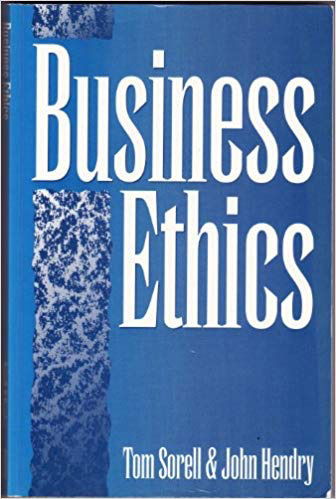
3:16: Is Nobel Laureate Muhammed Yunus right to assert that micro finance (the practice of providing small loans to promote entrepreneurial activity among those with few financial assets) is a human right given its potential to alleviate poverty?
TS: There are at least two issues here. First, is there an uncontroversial human right to be spared extreme poverty? Second, even if there is, does microfinance reliably alleviate extreme poverty? A human right is a claim to an internationally-recognised minimum standard of treatment from certain institutions. It is not simply a strong reason for action addressed to all individuals. For example, there is a strong reason for not lying addressed to everyone. But we do not have a “human right” not to be lied to. It is normally wrong for one sibling to open another’s diary and read its contents. But it is not an uncontroversial example of a human rights violation. It is simply a way for one individual to wrong another. And not every way of wronging someone else corresponds to a human right. There is no human right to fidelity in marriage, for example. Human rights come with an apparatus of institutions, including, primarily, governments which protect and realise those rights. Governments agree amongst themselves to protect freedoms and meet basic needs within their jurisdictions, including the needs for education, shelter, food and health care which the extremely poor find it hard to satisfy. It is clearly wrong for rich individuals not to contribute money as well to the satisfaction of these needs, but it is not a human rights violation. Instead, it is a failure of generosity, or even an example of personal injustice, if it is an obligation of justice personally to contribute to the relief of observed poverty until it starts to impoverish oneself or one’s dependents. Human rights violations occur when institutions fail to meet a minimum standard they are obliged to meet (often because they have solemnly agreed to meet it by ratifying an international treaty).
The next question is whether a state or anti-poverty agency violates the human rights of a relevant population of poor people if it does not offer microfinance –that is, micro-loans, to those with no assets for the purpose of their setting up small money-making enterprises. The answer would be ‘No’ if straight donations of money from governments worked much better at meeting basic needs, and governments were willing to make them. The answer would be ‘No’ if paying back loans is too difficult for borrowers in extreme poverty. The answer would be ‘No’ again if microfinance depends on private investment, and private investment is unforthcoming for the very poor, or loss-making when it is directed at the very poor. I deny that there is a human right to microfinance for reasons of these kinds.

My articles on microfinance belong to a big body of work in applied ethics that I’ve built up since the late 1980s. Since 2006, quite a lot of that has been supported by research grants to the Interdisciplinary Ethics Research Group , which I direct at Warwick. Almost everything I do now with my IERG colleagues is very applied –mainly in the ethics of technology, including security technology and artificial intelligence—and involves being “embedded” as ethicists with various kinds of practitioners, including engineers, police and intelligence officers, city planners, pathologists, and cybersecurity officials. I much prefer this work to adding to the now painfully overspecialized journal literature in philosophy.
3:16: Why don’t you think that private morality has priority over public morality nor that morality is unitary and why should we discard these views?
TS: I have written sceptically about the priority of private morality in connection with dirty hands in public life, and especially in response to Walzer’s classic paper on the subject. It begs the question to say, as Walzer does, that we rightly want good people (meaning --for him-- people with morally admirable private lives) to lead us, and that these people, being good, would do (as they should) appropriately dirty-handed things in public life when necessary. I argue that being good does not necessarily mean being good in private life primarily. If one has capacities for leadership or for playing useful public roles, it may sometimes be morally obligatory to exercise them –despite the strains it creates on meeting the obligations of private life. It is not always perfectly permissible to opt out of public life even if one is thereafter morally upright with friends and family. Public life exposes people to the need to get their hands dirty in ways that would be unthinkable in (at least bourgeois) private life, and it may not be morally optional for every private person to opt out of public life with its moral risks. But Walzer’s paper does imply that a good person who decided to avoid public life altogether –as opposed to avoid dirty-handed acts in office-- would be morally unblemished. For me, the opters-out with admirable private lives may not be wholly morally admirable. For me, the willingness of the few to go into public life and get their hands dirty may make it possible for the many to meet the often much less demanding requirements of private life. For those with a public role and a private life, it is great good luck if both add up to something deeply coherent and morally admirable. Public and private morality are not deeply complementary. They do not normally add up to something unitary.
3:16: And finally, for the readers here at 3:16, are there five books you can recommend that will take us further into your philosophical world?
TS: Here are five that connect up with what I’ve already talked about:
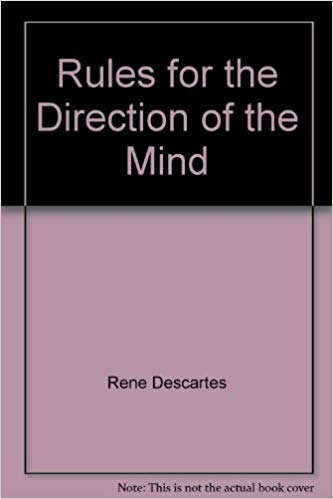
Rene Descartes, Rules for the Direction of the Mind
This early work looks forward to both the Discourse on Method and Meditation One. It also shows something of the modernity of his approach to science through its theory of simple natures.
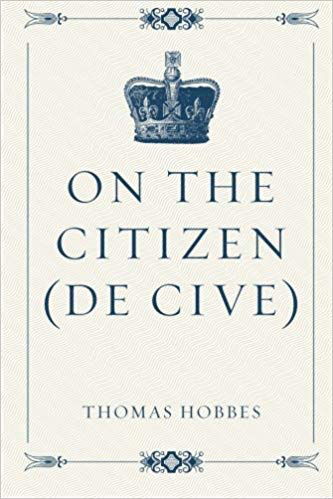
Thomas Hobbes, De cive (On the Citizen)
This is the self-contained version of Hobbes’s political philosophy, which was supposed to be intelligible apart from systematic psychology and the rest of the elements of natural philosophy.
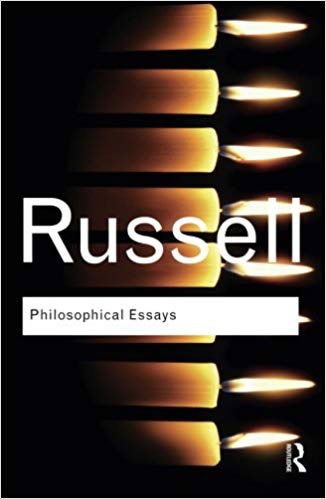
Bertrand Russell, Philosophical Essays
Contains three of the essays that made 1972-73 so difficult for me.
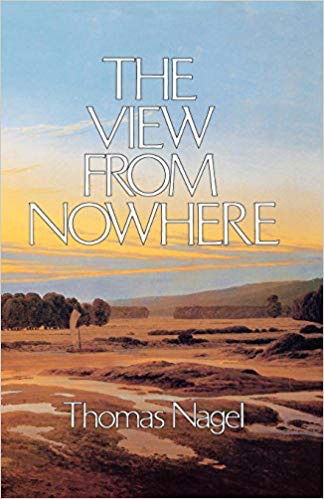
Thomas Nagel, The View from Nowhere
My favourite philosophical book by a living philosopher. Full of insight, very general in scope, not too long, and elegantly written.
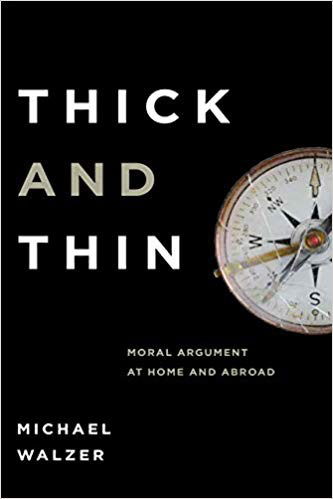
Michael Walzer, Thick and Thin: Moral Argument at Home and Abroad
A short, highly readable and provocative book about constraints on moral argument.
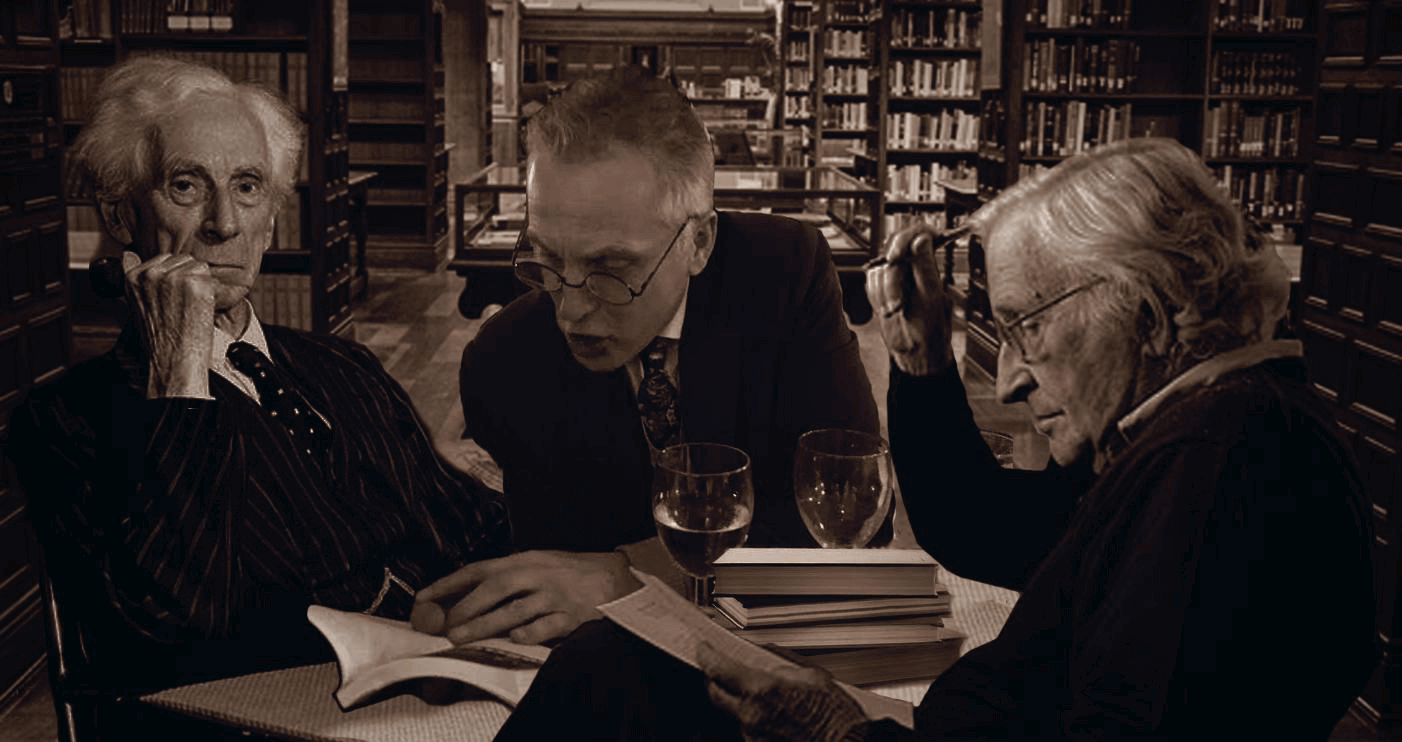
ABOUT THE INTERVIEWER
Richard Marshall is biding his time.
Buy his new book here or his first book here to keep him biding!
End Times Series: the index of interviewees